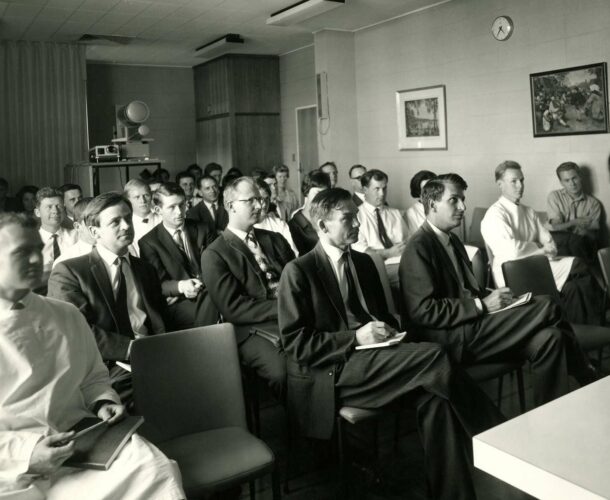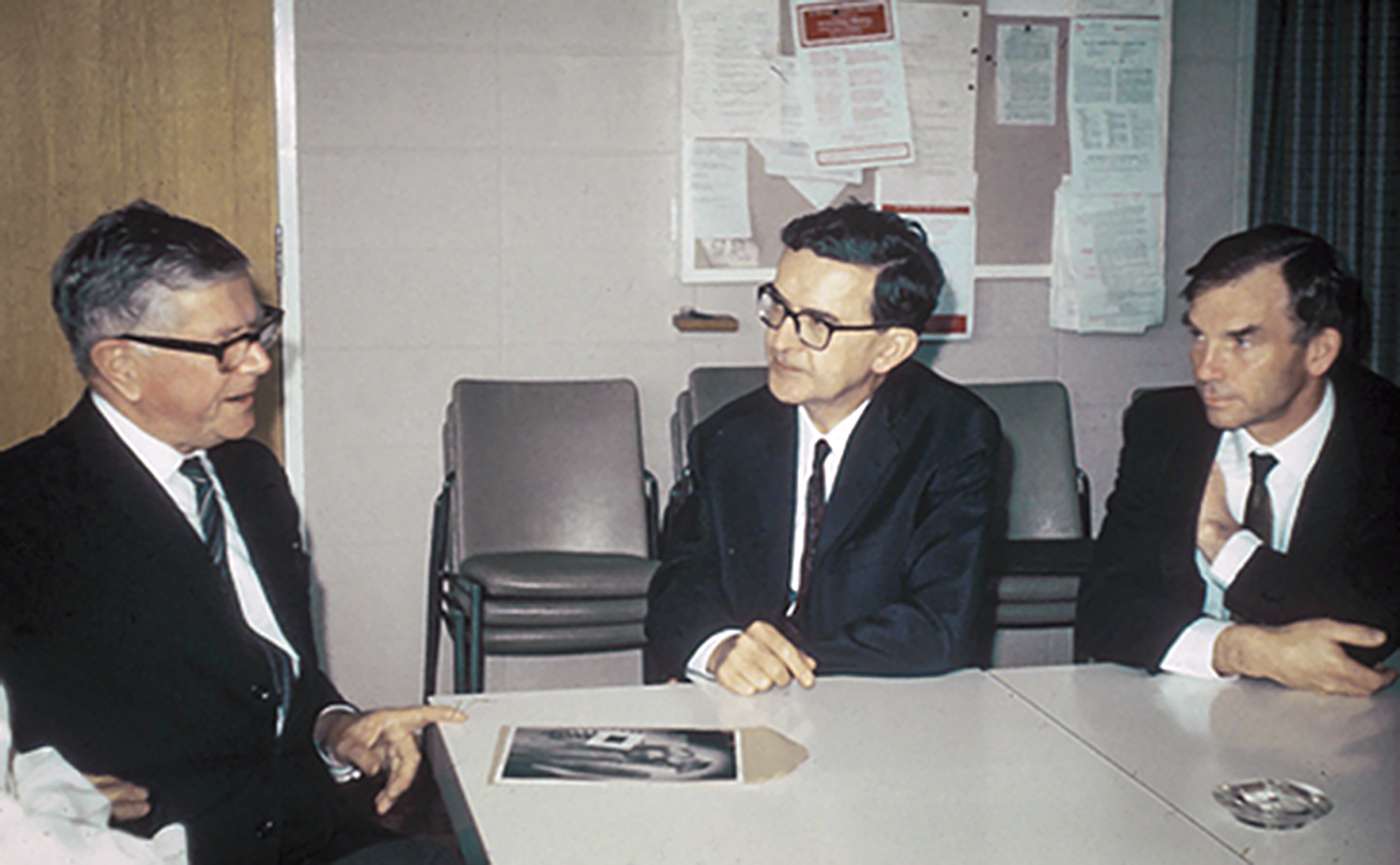As Burnet saw it, “the swing to immunology started almost spontaneously and by the time I decided that we should move out of virology, there was probably no possibility of any other decision.”1
Of course, Burnet’s interest in immunology had been evolving for some time, with his research into immunological tolerance, that would soon win him the Nobel Prize, his continued musings on the concept of how the body distinguished between ‘self’ and ‘non-self’, and the increasing focus of the Clinical Research Unit on what are now recognised as autoimmune diseases. According to Burnet, the clinical group were “becoming as much involved in immunology as the experimental ones.”
Burnet gathered the staff to inform them that, henceforth, the entire focus of the institute would be devoted to immunology.
In the book The Seeds of Time, Christopher Sexton recounted Professor Ian Mackay’s recollection of the meeting: “We were all summoned into a room whereupon Burnet informed us that the whole direction of the institute was to shift from virology to immunology. By implication this meant that those who did not wish to work in the field of immunology might as well go.”2
The immunology wave
Gus Nossal, who had just arrived at the Walter and Eliza Hall Institute from Sydney, remembers thinking his move to Melbourne had gotten off to a bad start.
“I had come to work under the world’s greatest virologist, Sir Macfarlane Burnet, and I was going to use viruses, the simplest of organisms, to discover the secrets of life! But to my dismay, Burnet was phasing out virus work, turning the institute almost entirely towards immunology. I was disappointed at first; little did I realise that he had climbed onto a huge wave that was just about to break, propelling us younger workers into a glorious future.”
1 Burnet, Frank Macfarlane. Walter and Eliza Hall Institute 1915-1965. Melbourne University Press, 1971, p71
2 Sexton, Christopher. The Seeds of Time: The Life of Macfarlane Burnet. Oxford University Press, 1991, p134








